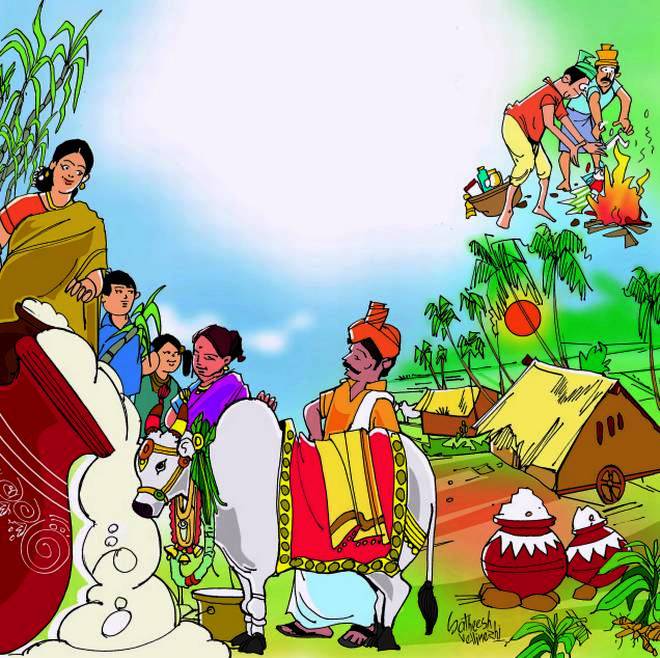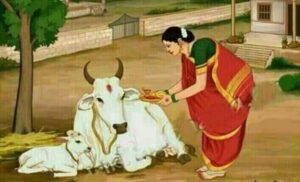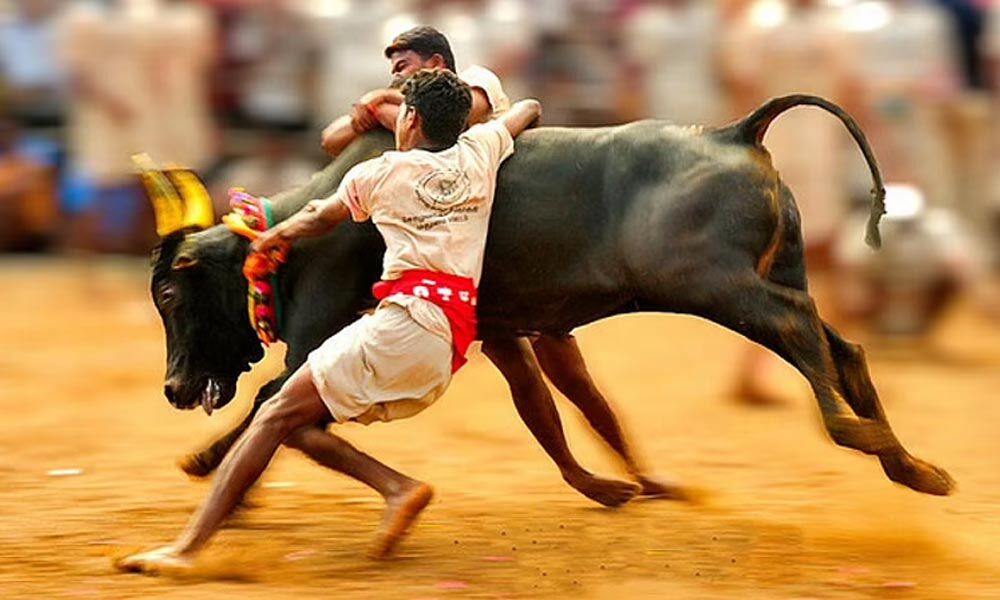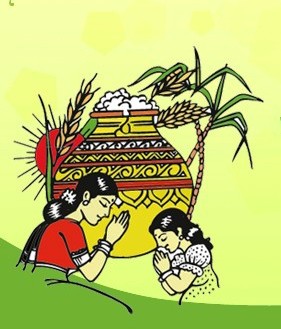Our beloved Bharatvarsha is a land of ancient Vedic practices and a rich heritage emulated globally. We are in an agrarian country where we revere the fundamental points of agriculture. Our animal stock forms a veritable fulcrum.
In our ‘Sanatana Dharma’, there are many scientifically proven rituals that are dedicated to nurturing our livestock.
Among them, we pay our respects to our cattle throughout the year, especially through forty-three celebratory events like festivals, Bullock Cart Races, and so on.
Kanuma
Kanuma is a truly significant festival dedicated to cattle. It is celebrated in Andhra Pradesh as a part of the Sankranthi festival. Kanuma falls on the third day of this four-day-long festival. It is of special importance to farmers who consider cattle as a symbol of good fortune and prosperity.
In the phase of Uttarayana at a point when the nodal position of the Sun moves from the Southern Hemisphere to the Northern Hemisphere, Kanuma is enjoyed socially, religiously, and above all spiritually.
- As per the Tamil Panchang (Almanac), the month is referred to as Marghazi, and
- as per the Telugu Tithi, it is the auspicious month of Pushya.
The next day of Sankranti is the day of Kanuma. People must take a head bath on this day to get rid of Kanuma Peeda. Here a proverb is said “Even crows take a dip in the water “.
Kanuma is a festival of animals. Sankranti is the right time for farmers to express their gratitude to their cattle which played an important role in the harvest.
Hence farmers wake up early in the morning and clean their oxen. They paint their horns and decorate them with Marigold flowers. Then they feed them and give harati. ‘Go puja’ is also performed at the temples.

- Some farmers go to their fields, sacrifice a goat or sheep, and sprinkle the blood in their fields.
- Some farmers take cooked rice and milk to the cattle shed offer some of it to the cattle and the remaining to their fields and scatter it there.
They believe that this offering keeps the ghosts away from their crops. On this day blessings are taken from the elders. Especially married women bless each other with turmeric paste for Sowbhagyam.
Dedicated to Cows
As per our Scriptures, Our Lord Sri Krishna saved His devotees in Gokulam from the devastation of a deluge. Our Lord picked up the mammoth Govardhan Mountain to protect the land, the human beings, and the livestock. It marks the victory of our Bhaktavatsala (the Protector of the Bhaktas) against Lord Indra.
This festival is dedicated to cows, bulls, and oxen which form the fundamental aspect of the agricultural plethora of our beloved Bharat.

Go Puja
An elaborate and spiritually uplifting Govardhan Puja or Go Puja is organized to worship the most holy Gomata (the Mother of all….the Cow). The rituals are vivid and soul enriching. The cattle are bathed and decorated with paint and ornaments on this day.
They are taken to nearby temples where rituals are performed for worship. The most healthy bulls are adorned with ornaments and are brought in for processions thus displaying a farmer’s grandeur. These processions are illustrated with ‘sannai’ music.
In some places, a typical practice named ‘Jallikattu‘ (it is a sport conducted for cows and bulls) is celebrated as a part of Pongal. Special dishes are a part of this festival. They are ‘ariselu’ made of rice flour and jaggery, ‘pulihora’, ‘laddu’, ‘sweet pongal,’ ‘moongdal payasam’, ‘bobbatlu’ or ‘puran poli’ and cracked wheat ‘halwa’.

Charity forms a pleasant part of the auspicious occasion of the Kanuma festival.
Mukkanuma
The concluding day of a four-day festival is mukkanuma, a joyful day. Cockfights, bullfights ram fights, etc. are organized with joy and pomp.
- Some betting is done on cattle.
- Rangoli competitions are conducted for women.
- Children play with kites.
- Kite flying also has a symbolic meaning.
It is said that the higher your kite goes, the higher you will rise in the future.

